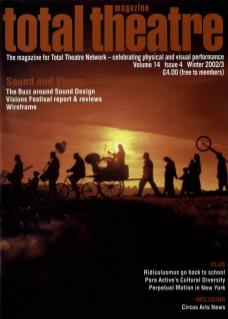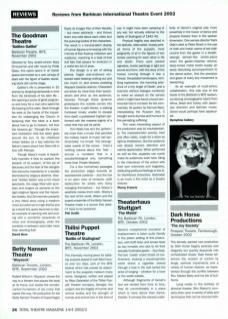This intensely moving piece for tabletop puppets played to well-filled houses over ten days, part of the BITE festival which has proved its attachment to the puppetry medium many times. Designed, written and played by Rezo Gabriadze of the Tbilisi Puppet Theatre company, Georgia, the subject was the fragility of human and animal bodies and the strength of human and animal love in the time of war. It might have been speaking of any war, but actually referred to the battle of Stalingrad of 1942-43.
Physical fragility was depicted in the delicate, attenuated, loosely jointed forms of the puppets, most poignantly of all in the figures of two horses yearning for each other in life and death. There were several vignettes, kinetic paintings in light and sound and form, with the story of the horses running through it like a thread. Devastated landscapes, terrifying explosions, the hovering presence of a tiny Angel of Death, and a scenario without dialogue combined to make an assault on the senses which I might have found a touch sentimental had it not been for the commentary. As spoken by Samuel West, interpolating the Russian text, it brought some dryness and humour to the pervading suffering.
The most interesting aspect of the production was its insubstantiality. The impressionistic scenes, brief and often static, made for a show as light as thistledown. But the audience was deeply moved, attentive and warmly appreciative. When performed as well as this, puppetry can surely make its audiences work hard, filling in the interstices of the action with their own memories and tragedies, attributing profound feelings to the little blank-faced characters. Gabriadze is as much a fine artist as a theatre director.

